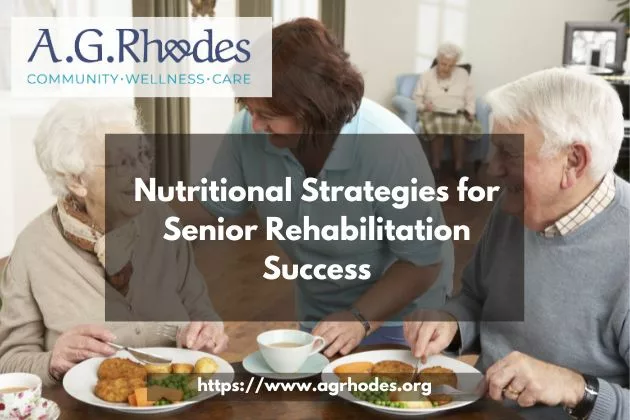
Understanding Senior Rehabilitation
Before delving into specific nutritional strategies, it’s important to grasp the intricacies of senior rehabilitation. Seniors often face various health challenges, including mobility issues, muscle weakness, cognitive decline, and chronic conditions such as arthritis or osteoporosis. Rehabilitation aims to enhance physical function, alleviate pain, and improve overall quality of life.
Challenges in Senior Nutrition
Seniors encounter unique nutritional challenges that can hinder the rehabilitation process. These include:
- Decreased Appetite: Aging often leads to a decrease in appetite, resulting in reduced food intake and potential nutrient deficiencies.
- Nutrient Absorption: Age-related changes in the digestive system can impair nutrient absorption, making it harder for seniors to obtain essential vitamins and minerals.
- Dental Problems: Dental issues such as missing teeth or ill-fitting dentures can make chewing difficult, leading to food avoidance and inadequate nutrition.
- Medication Interactions: Seniors often take multiple medications, some of which may affect appetite or nutrient absorption, further complicating their nutritional status.
Essential Nutrition in Elderly People
To optimize senior rehabilitation outcomes, implementing appropriate nutritional strategies and a good diet for the elderly is imperative. Here are key strategies to consider:
1. Balanced Diet for the Elderly
Encourage seniors to consume a well-rounded diet consisting of fruits, vegetables, whole grains, lean proteins, and healthy fats. Emphasize foods rich in essential nutrients such as calcium, vitamin D, and protein to support bone health and muscle strength.
2. Hydration
Proper hydration is vital for seniors undergoing rehabilitation. Dehydration can exacerbate existing health issues and hinder recovery. Encourage seniors to drink adequate fluids throughout the day, including water, herbal teas, and low-sugar beverages.
3. Nutrient-Dense Snacks
Provide nutrient-dense snacks to supplement seniors’ diets and prevent nutrient deficiencies. Opt for healthy food for seniors like nuts, yogurt, cheese, fresh fruit, and whole-grain crackers. These snacks are not only nutritious but also convenient for seniors to enjoy between meals.
4. Individualized Meal Plans
Tailor meal plans to meet the unique nutritional needs and preferences of each senior. Consider factors such as dietary restrictions, food allergies, cultural preferences, and chewing/swallowing difficulties. Consulting with a registered dietitian can help create personalized meal plans that support optimal rehabilitation outcomes.
5. Regular Monitoring
Regularly monitor seniors’ nutritional status and adjust meal plans as needed. Assess factors such as weight changes, dietary intake, hydration status, and nutritional deficiencies. Collaboration between healthcare providers, dietitians, and caregivers is essential for comprehensive nutritional management.
Conclusion
Proper nutrition for old people is integral to the success of senior rehabilitation efforts. By implementing tailored nutritional strategies, healthcare providers can support seniors in achieving optimal outcomes and enhancing their overall well-being.

